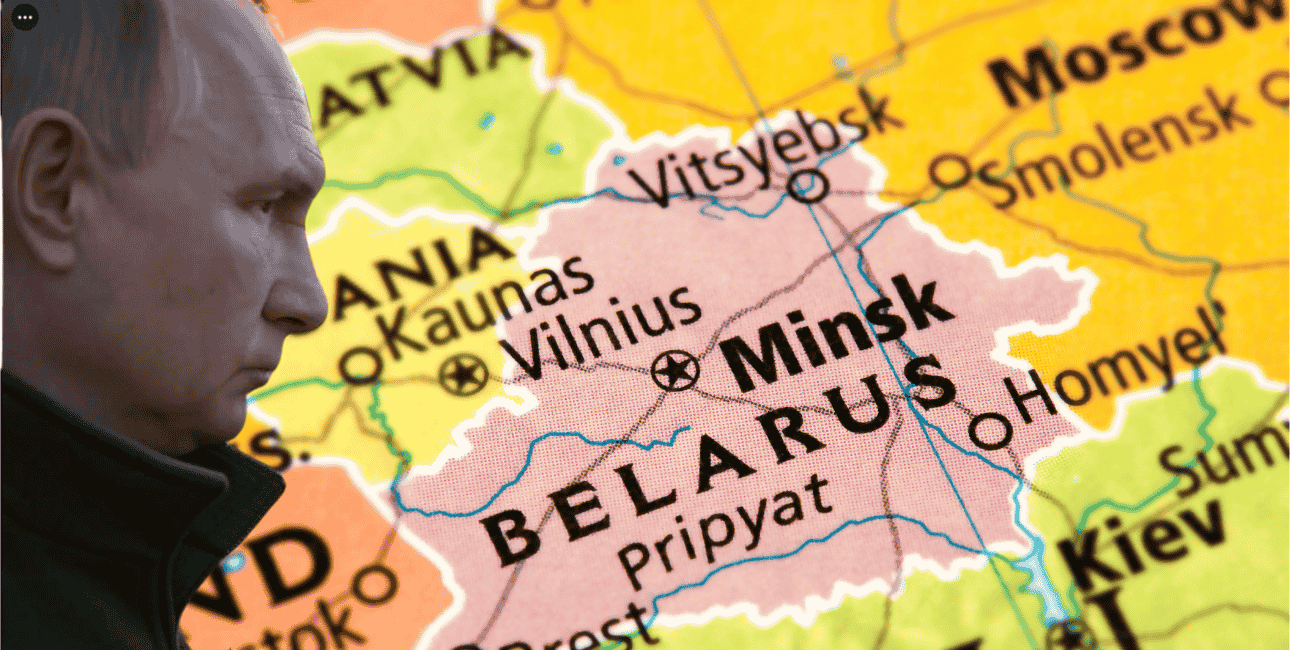Russia appears to be executing a familiar playbook in Ukraine—one that has already proven successful in Belarus. According to recent reports, the Kremlin is pivoting from its costly military campaign to a more insidious approach focused on political subjugation.
The Kremlin is recalibrating its approach toward Ukraine, shifting from direct military conquest to engineering political upheaval, according to a report by The Moscow Times.
Citing multiple sources and independent experts, the report suggests that Russian leadership now sees regime change in Kyiv as a more viable route to subjugation than a prolonged and costly military campaign.
Meanwhile, US President Donald Trump expressed his frustration with Russian leader Vladimir Putin in an NBC interview over the weekend, accusing him of stalling ceasefire negotiations.
Despite diplomatic overtures and ceasefire negotiations, Moscow’s ultimate goal remains unchanged: total dominance over Ukraine, whether militarily, politically, or economically.
Kremlin rhetoric and anonymous sources indicate that this is not a negotiation ploy but a steadfast commitment to realizing Russia’s maximalist ambitions.
The Two-Pronged Strategy
Russia envisions two possible scenarios for achieving its objectives in Ukraine. The preferred outcome is orchestrating a regime change in Kyiv, effectively turning Ukraine into a puppet state akin to Belarus. This would grant Moscow de facto control over Ukraine’s policies and ensure its subordination to Russian interests.

If regime change proves unattainable, the Kremlin’s fallback plan is to cement control over the four Ukrainian regions it has annexed.
However, even this secondary objective is proving difficult to achieve. Russian forces have yet to fully secure these occupied territories, and Kyiv remains resolutely opposed to any territorial concessions.
Belarus: Russia’s Strategic Launchpad
Since the collapse of the Soviet Union in 1991, Belarus has remained one of Russia’s most steadfast allies. Under President Alexander Lukashenko, who has ruled since 1994, Minsk has consistently aligned itself with Moscow, particularly in the ongoing war against Ukraine.
Lukashenko’s government swiftly demonstrated its loyalty to Putin following Russia’s full-scale invasion in February 2022.
Within a month, Belarus withdrew its embassy from Kyiv—a symbolic move signaling its allegiance. Beyond rhetoric, Belarus has played an active role in the conflict, reportedly allowing Russian forces to launch attacks from its territory, significantly influencing battlefield dynamics.
In response, Ukraine’s Western allies, particularly the United States, have imposed sweeping sanctions on Belarus. These measures, including financial restrictions, airspace bans, and visa limitations, aim to penalize Minsk for its complicity in Russia’s aggression.
Russia’s Silent Annexation
Russia’s efforts to tighten its grip on Belarus are reaching a critical stage, posing serious strategic risks to the United States, NATO, and Ukraine.
According to a report by the Institute for the Study of War, Moscow is in the final phase of a decades-long campaign to effectively annex Belarus. If completed, this move would significantly enhance Russia’s military and economic power, enabling it to pursue its expansionist ambitions against the West more aggressively.
Although Belarus is often seen as a close ally of Russia, the Kremlin is transforming it into something far more consequential—a direct enabler of Russian military and geopolitical dominance. By exploiting the Union State framework, Moscow is working to formalize Belarus as an extension of the Russian Federation.
While this process is not yet complete, it has already yielded major gains, forcing NATO to reconsider the implications of Russia’s growing control over Belarusian territory, resources, and military infrastructure.
The Kremlin’s Blueprint For Absorbing Belarus
Russia’s strategy for de facto annexation includes:
Military Control: Establishing permanent Russian military bases in Belarus and securing full operational authority over Belarusian armed forces—even in peacetime.
Political Domination: Merging governance structures under a Kremlin-controlled federation, eroding Belarusian sovereignty in favor of Russian rule.
Economic Integration: Creating a unified economy with common markets, unrestricted labor flows, a shared legal system, and a single currency.
Belarus’ location on NATO’s eastern flank, its population of over 9 million, and its economic assets make it a valuable prize for Moscow. By consolidating control over Belarus, Russia can more efficiently offset the costs of its prolonged war in Ukraine, accelerate post-war recovery, and prepare for future conflicts.
A Long-Running Plan With Deep Historical Roots
The idea of Russian-Belarusian integration is not new. In December 1999, Belarusian President Alexander Lukashenko signed the Union State Treaty with Russia, originally conceived as a partnership between near-equals.
However, once Vladimir Putin took power in 2000, he repurposed the agreement as a tool for consolidating Russian dominance over Belarus. Over time, Moscow has tightened its control under the guise of deeper cooperation, leaving Belarus increasingly dependent on and subordinate to the Kremlin.
While a complete Russian takeover of Belarus is not inevitable, it is now closer than ever. What was once framed as an alliance is rapidly evolving into an outright absorption of Belarus into the Russian sphere, making it not just a loyal partner but an extension of Russian power itself.
The Strategic Implications
For Ukraine, Belarus represents a cautionary tale of how Russia can gradually subsume a nation’s sovereignty without formal annexation.
This strategy poses complex challenges for Western allies. While military aggression provokes an immediate international response, political subversion works more subtly, making it harder to counter with traditional diplomatic and economic tools.
- Shubhangi Palve is a defense and aerospace journalist. Before joining the EurAsian Times, she worked for ET Prime. She has over 15 years of extensive experience in the media industry, spanning print, electronic, and online domains.
- VIEWS PERSONAL OF THE AUTHOR
- Contact the author at shubhapalve (at) gmail.com




